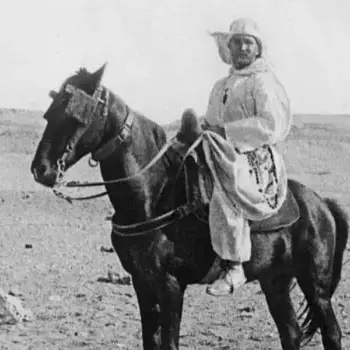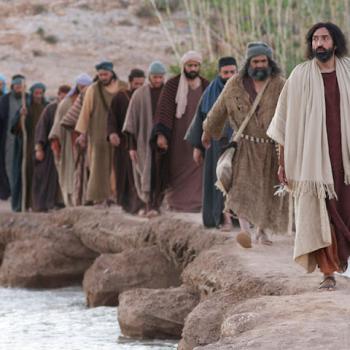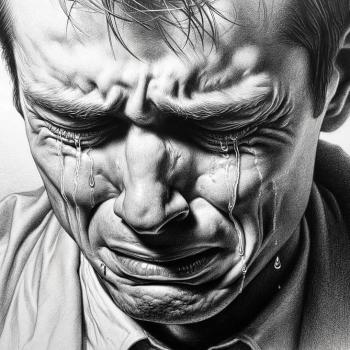You ask me about the future of Vodou? I think it might be more accurate to discuss the futures of the various manifestations of Vodou in America. Vodou is not a monolithic faith even in Haiti; here in America, a land with considerably more cultural, linguistic, and social diversity, we can expect to see even greater variation in the manifestations of sevis lwa.
Haitian Vodou
Are we talking about Vodou as practiced by Haitian immigrants and Haitian-Americans? I think that Vodou will continue to be an important part of Haitian culture in the Diaspora. When the slaves were brought over during the Middle Passage, they held onto African customs as a way to remember what they had lost. For those Haitians driven from their homes by economic or political pressure, Vodou can serve as a way of preserving their Haitian identity. Should conditions continue to deteriorate in Haiti—and if recent history is any indication, they will—we will see a continuing influx of Haitians seeking to try their luck in America. Even in the midst of the Great Recession, the United States offers far more opportunity than Cité Soleil or deforested rural Haiti.
Haitian-American Vodou differs in some ways from practices in the homeland. I've seen a few American Vodou services without drummers; while this would be unthinkable in Haiti, hiring drummers is more costly here and often zoning and noise ordinances will not permit them. Mange sec (literally "dry food") parties, which do not involve animal sacrifice, are more common here. Like most other Americans, Haitian immigrants most typically get their food from the supermarket rather than their backyard and attendees are more likely to be fed with items purchased from the store than livestock sacrificed to the lwa. But the congregants are dedicated, the lwa arrive in possession, and the services help to meet the social and spiritual needs of those who attend, be they natif natal Haitians, second- or third-generation immigrants, or, in growing numbers, non-Haitians.
But there are also forms of American Vodou that are inspired by Haitian practices and religion, but that do not have direct Haitian "roots." I have noticed at least three different strains of this "Neo-Voodoo."
New Orleans Voodoo
Take African-American folk magic, throw in some Catholic saints and local folk heroes, then add a healthy dollop of entertainment for the tourists and you have New Orleans Voodoo. NO Voodoo is arguably a quintessentially American religion. It has been one of the city's most reliable businesses for over 150 years; it has always shaped itself to appeal to visitors and has always been as much about showmanship as spirituality. It is a Baudrillardian simulacrum or a Debordian Spectacle, simultaneously frivolous fun and serious devotion. Take away the French phrases and exoticism and it is a quintessentially American religion; long before the megachurches and televangelists, Marie Laveau and Dr. John were plying a trade of healing, testifying, and lining their pockets.
Today's New Orleans Voodoo draws liberally from Cuban Santeria and anything else that seems interesting: Sallie Ann Glassman's work has a decidedly Thelemic influence, while Priestess Miriam Chamani learned a great deal from her late husband Oswan, a folk healer from Belize. Louis Martinie has added Chaos Magic and Bertiaux's Vodun Gnosticism to his practices. This is only to be expected from a port city; the Big Easy has always been a place where various strains came together to make a potent Gumbo de la Nouvelle Orleans. Haitian practices are an important ingredient in this mix, but they are not the only or even the most important.
Of course, it is difficult to discuss the future of New Orleans without considering the impact of 2005's Hurricane Katrina and this summer's Deepwater Horizon oil spill. Katrina leveled many of the city's poorest areas, thereby wiping out the traditionally black areas that had preserved so much of the folk religion. The subsequent reconstruction focused on the city's wealthier and more tourist-friendly areas: this may give the "neo-Voodoo" that has received much recent attention even more of an advantage over traditions that are historically significant but more difficult to market. Of course, the recent oil spill—or another hurricane—may set the tourist trade back yet again. As has always been the case, the future of New Orleans is largely dependent upon the vagaries of weather and economics.
Afrocentric Vodou
With the rise of Les Noiristes during the American occupation of Haiti (1915-1934), Haitian intellectuals took a new interest in Vodou. In America we saw a similar explosion of "Black consciousness" during the early days of the Civil Rights movement. After Alex Haley's Roots (the book and later the miniseries), black Americans sought to learn more about the African culture from which their ancestors had been torn. Some sought to reconnect with Africa through the traditions that had survived in the Caribbean, including Vodou.




